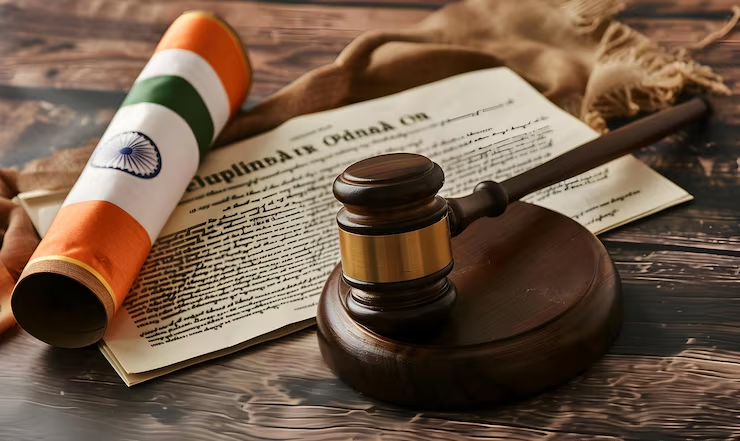Women Right to property after marriage in India have undergone a profound evolution—from ancient patriarchal restrictions to modern statutory equality. After marriage, a woman’s proprietary position intersects with strīdhan, coparcenary inheritance, and the constitutional goal of gender justice under Article 14 of the Constitution of India. Historically, women’s property was treated as “limited ownership” or “woman’s estate,” but contemporary jurisprudence—particularly after the Hindu Succession (Amendment) Act, 2005—recognizes her full proprietary equality.
Women Right to Property After Marriage, analyzing the legal framework governing strīdhan, inheritance, and dowry through a neutral lens, while highlighting relevant provisions of the Hindu Succession Act 1956, Hindu Marriage Act 1955, Dowry Prohibition Act 1961, and Bharatiya Nyaya Sanhita 2023 (BNS), along with Section 144 BNSS 2023 (Maintenance).
Concept of Strīdhan
2.1 Definition and Sources
The term strīdhan (“woman’s property”) originates from ancient Hindu texts. Under modern Hindu law, strīdhan denotes property acquired by a woman from any source—by inheritance, gift, purchase, or skill—that she owns absolutely.
2.2 Statutory Position
Section 14(1) of the Hindu Succession Act, 1956, provides that a female Hindu shall hold property “as full owner thereof and not as a limited owner.” This provision abolished the “limited estate” doctrine and granted complete ownership.
2.3 Judicial Interpretation
In Pratibha Rani v. Suraj Kumar, (1985) 2 SCC 370, the Supreme Court held that strīdhan is a woman’s absolute property; husband or in-laws hold no share. Wrongful retention constitutes criminal breach of trust under Section 406 IPC (now Section 316 BNS 2023).
In Rashmi Kumar v. Mahesh Kumar Bhada, (1997) 2 SCC 397, the Court reaffirmed that failure to return strīdhan is punishable.
Inheritance and Coparcenary Rights
3.1 Pre-2005 Position
Under the Mitakshara school, only male members were coparceners by birth. Daughters could inherit only on partition or as legal heirs.
3.2 The 2005 Amendment
The Hindu Succession (Amendment) Act, 2005, substituted Section 6, granting daughters equal coparcenary rights by birth—identical to sons—and repealed discriminatory Sections 23 and 24.
3.3 Judicial Development
Vineeta Sharma v. Rakesh Sharma, (2020) 9 SCC 1 – Held daughters are coparceners by birth, irrespective of father’s death or marriage status.
Danamma @ Suman Surpur v. Amar, (2018) 3 SCC 343 – Affirmed retrospective application of the 2005 Amendment.
A married daughter thus retains full inheritance and partition rights.
Dowry and Property: A Neutral View
4.1 Statutory Scheme
The Dowry Prohibition Act, 1961, penalizes dowry under Sections 3–6. Section 6 recognizes the bride’s ownership over property given “in connection with marriage” within three months.
4.2 Distinction between Dowry and Strīdhan
In Satbir Singh v. State of Haryana, (2021) 6 SCC 1, the Supreme Court clarified that strīdhan (voluntary gifts) is distinct from dowry (coerced transfers). The former creates independent property rights; the latter invites penal consequences.
4.3 BNS 2023 Alignment
Sections 80–83 BNS (analogous to Sections 304B and 498A IPC) preserve criminal liability for dowry deaths and cruelty, while Sections 316–318 BNS address breach of trust involving strīdhan.
Women’s Rights in Marital Property
5.1 During Marriage
Indian law does not recognize joint marital property by default. Each spouse retains self-acquired assets. However, Section 17 of the Protection of Women from Domestic Violence Act, 2005, grants a right of residence in the shared household.
5.2 Upon Divorce or Death
On divorce, strīdhan and self-acquired property revert to the woman. Maintenance is governed by Section 25 of the Hindu Marriage Act 1955 and Section 144 of the BNSS 2023 (the new code’s equivalent of Section 125 CrPC).
On the husband’s death, the widow inherits as a Class I heir under the HSA 1956, alongside sons and daughters.
Equivalent Provision: Section 144 BNSS 2023 (Maintenance)
Under the Bharatiya Nagarik Suraksha Sanhita, 2023, Section 144 corresponds to Section 125 of the Criminal Procedure Code, 1973.
It empowers magistrates to order monthly maintenance to:
the wife (including a divorced wife unable to maintain herself),
legitimate or illegitimate minor children,
adult disabled children, and
dependent parents.
This ensures continued economic protection for women post-marriage, reinforcing their independent status alongside property rights. The BNSS thus harmonizes maintenance rights with gender-neutral principles, integrating civil welfare within criminal procedure.
Constitutional and Policy Dimensions
Article 14: Equality before law.
Article 15(3): Permits affirmative measures for women.
Directive Principles (Art. 39(b)–(c)): Advocate equitable distribution of resources.
The judiciary has interpreted these provisions to sustain gender-equitable succession and ownership, transforming private family law into an instrument of constitutional justice.
References (APA 7th Edition)
Bharatiya Nyaya Sanhita, 2023 (Act 45 of 2023).
- Bharatiya Nagarik Suraksha Sanhita, 2023 (Act 46 of 2023), s. 144.
- Dowry Prohibition Act, 1961 (Act 28 of 1961).
- Hindu Marriage Act, 1955 (Act 25 of 1955).
- Hindu Succession Act, 1956 (Act 30 of 1956).
- Hindu Succession (Amendment) Act, 2005 (Act 39 of 2005).
- Protection of Women from Domestic Violence Act, 2005 (Act 43 of 2005).
- Pratibha Rani v. Suraj Kumar, (1985) 2 SCC 370.
- Rashmi Kumar v. Mahesh Kumar Bhada, (1997) 2 SCC 397.
- Vineeta Sharma v. Rakesh Sharma, (2020) 9 SCC 1.
- Danamma @ Suman Surpur v. Amar, (2018) 3 SCC 343.
- Satbir Singh v. State of Haryana, (2021) 6 SCC 1.
Conclusion
The evolution of women’s property rights after marriage reflects the transition from dependency to parity. Through Section 14 HSA 1956, the 2005 Amendment, and Section 144 BNSS 2023, a married woman today enjoys:
- Absolute ownership over her strīdhan;
- Equal coparcenary inheritance;
- Independent right to maintenance; and
- Legal remedies for recovery and protection.
True empowerment, however, requires awareness and enforcement—bridging the gap between statutory equality and social reality.





